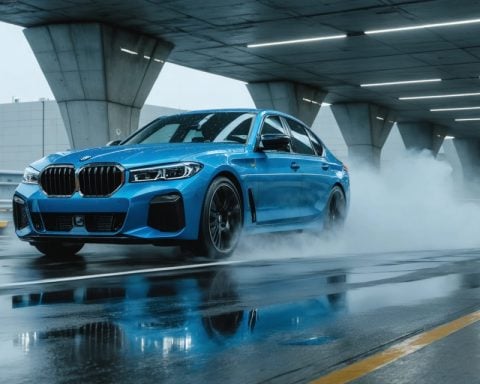The Reluctance to Go Electric
Despite the urgent push for a transition to electric vehicles (EVs) in the UK, many drivers remain uncertain about making the switch. Jacob Pfaudler, CEO of the AA, notes that while there is no outright resistance to EVs, a lack of confidence among motorists persists, especially with the looming 2030 ban on petrol and diesel cars.
Recent market data indicates a downturn in new car sales, which declined by 6% in October, amounting to a loss of over 9,000 vehicles. Although EV sales experienced a slight uptick due to the availability of 125 distinct models, the increase is largely attributed to significant manufacturer discounts aimed at easing the transition. This reliance on subsidies has cast doubt on the sustainability of the sales boost.
The UK government is actively seeking solutions to better support this transition through a new consultation process, aiming to refine the approach leading to the 2030 target. Pfaudler emphasizes that clarity regarding the role of hybrid vehicles and the development of charging infrastructure will be pivotal in alleviating driver concerns.
Furthermore, Energy Secretary Edd Miliband highlights the economic advantages of adopting electric vehicles, underscoring their lower operational costs compared to traditional combustion engines. Transitioning to EVs, he argues, not only benefits the environment but also spurs economic growth, creating skilled jobs and supporting local manufacturers in the evolving automotive landscape.
Why the UK Is Hesitant to Embrace Electric Vehicles: The Road Ahead
Despite a growing recognition of the urgent need to transition to electric vehicles (EVs) in the UK, many drivers remain hesitant to commit to this change. Jacob Pfaudler, CEO of the AA, points out that while there isn’t a complete resistance to EVs, a notable lack of confidence persists among motorists, especially with the impending 2030 ban on new petrol and diesel vehicles.
Current Market Trends
Recent data reveals a concerning trend in the automotive market: new car sales fell by 6% in October, equating to a reduction of over 9,000 vehicles sold. Although there has been a slight increase in EV sales, attributed to an expanded selection of 125 different models, this growth is largely fueled by substantial manufacturer discounts. This reliance on subsidies raises questions about the long-term sustainability and stability of EV sales.
Government Initiatives
In response to these challenges, the UK government is pursuing new consultations aimed at refining the strategies for meeting the 2030 target for zero-emission vehicles. A critical point raised by Pfaudler is the need for clarity regarding the role of hybrid vehicles and the development of robust charging infrastructure. These elements are vital in building the confidence of drivers who are still on the fence about making the transition to electric vehicles.
Economic Implications
Energy Secretary Edd Miliband has emphasized the economic benefits associated with transitioning to electric vehicles. He notes that EVs have significantly lower operational costs compared to traditional combustion engines, which can lead to substantial savings for consumers. Additionally, this shift is expected to stimulate the economy by creating skilled jobs and supporting local manufacturers in the automotive industry, driving innovation and sustainability.
Pros and Cons of Electric Vehicles
Pros:
– Environmental Benefits: EVs produce zero tailpipe emissions, which can significantly reduce air pollution in urban areas.
– Lower Operating Costs: Electric vehicles generally cost less to maintain and operate compared to petrol or diesel cars, often resulting in savings on fuel.
– Government Incentives: Consumers may benefit from various incentives such as tax breaks, grants, or subsidies aimed at encouraging the adoption of EVs.
Cons:
– Range Anxiety: Many drivers fear running out of battery power before they can recharge, a concern that is often exacerbated by the current state of charging infrastructure.
– Upfront Costs: Electric vehicles can have higher initial purchase prices, although this is being mitigated by available discounts and incentives.
– Charging Infrastructure: The availability and speed of charging stations remain a significant barrier for many potential EV owners.
Future Predictions and Market Insights
Looking to the future, experts predict that as technology continues to evolve, electric vehicles will become increasingly affordable, and advancements in battery technology will help alleviate concerns related to range and charging times. Additionally, the growth of renewable energy sources and smart grid technologies is expected to support the sustainability of EV adoption.
For ongoing developments in the electric vehicle sector and the automotive market, visit Auto Express, a trusted source for the latest automotive news, reviews, and tips.
Conclusion
While there are challenges to overcome, the shift toward electric vehicles in the UK is inevitable. Continued innovation, government support, and improved consumer confidence will be key to ensuring a successful transition as the 2030 deadline approaches. The landscape of the automotive industry is changing rapidly, providing an exciting yet challenging environment for both consumers and manufacturers.













